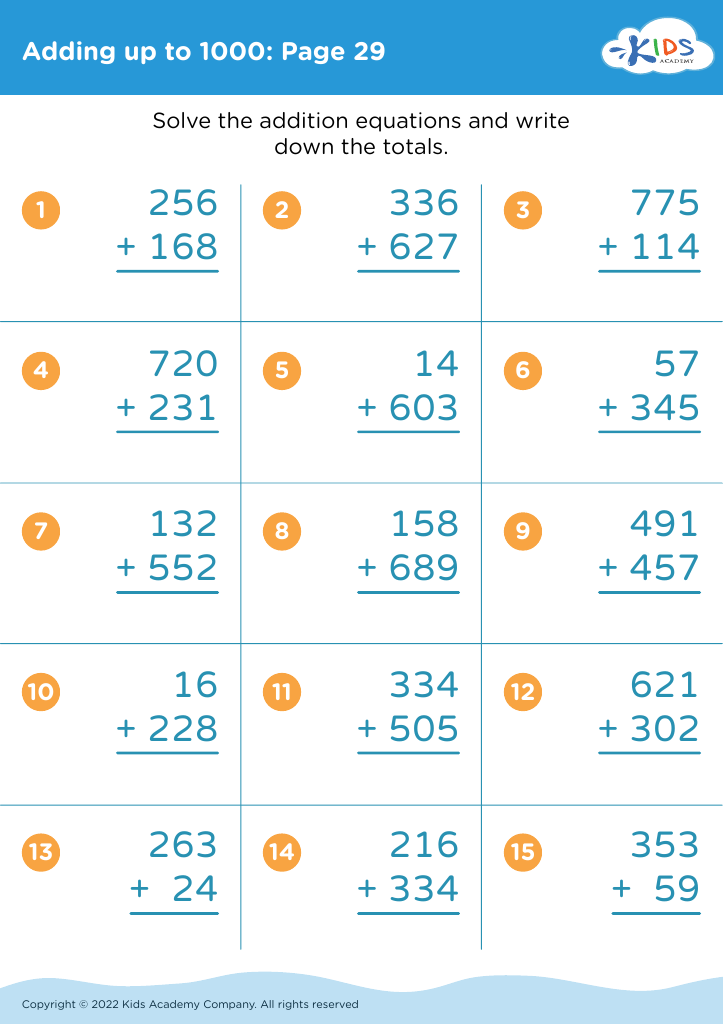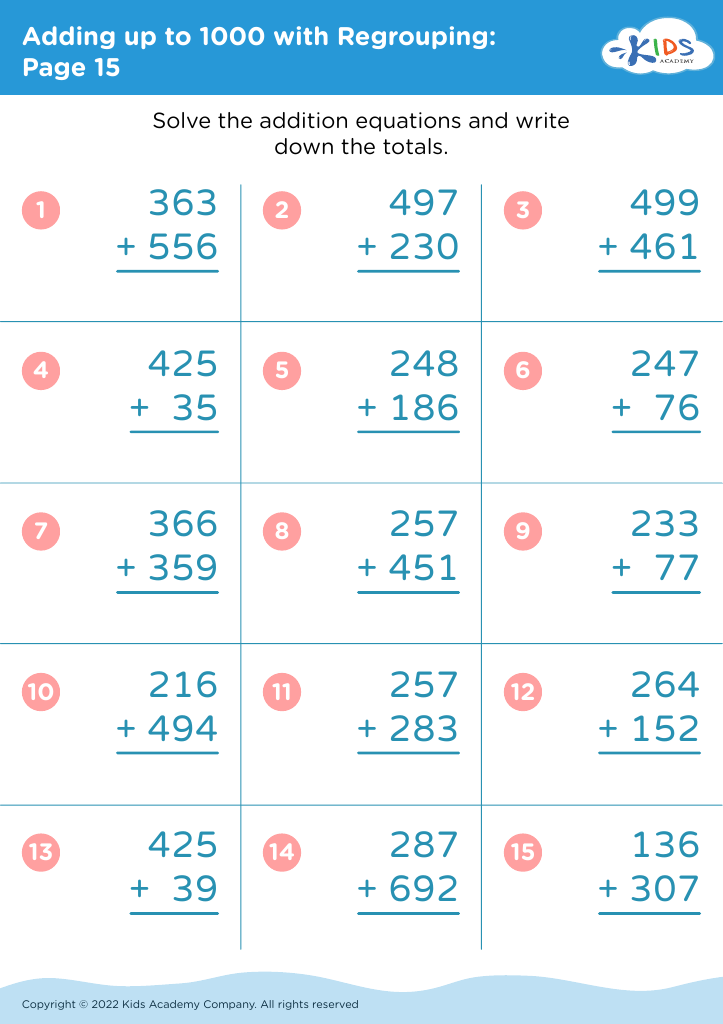Understanding time Adding up to 1000 Worksheets for Ages 3-8
3 filtered results
-
From - To
Discover our "Understanding Time: Adding Up to 1000 Worksheets" designed for children aged 3-8. These engaging and educational worksheets help young learners enhance their mathematical skills while developing a solid grasp of time concepts. Perfect for early grade students, the activities encourage kids to practice addition up to 1000 in a fun, interactive way. With a variety of exercises, including clock reading, scheduling activities, and time-based math problems, our materials provide an excellent resource for educators and parents alike. Foster a love for learning and build foundational math skills while exploring the essential concept of time with our comprehensive worksheets!
Understanding time and the concept of adding up to 1000 are foundational skills for children ages 3-8, and it's crucial that parents and teachers recognize their importance. First, grasping the concept of time help children develop crucial planning abilities and understand routines, enhancing their overall organization. It fosters a sense of independence as they learn to recognize when to complete tasks, such as getting ready for school or bedtime.
Additionally, early exposure to numbers and the concept of adding up to 1000 lays the groundwork for mathematical literacy. As young learners explore numbers, they build confidence and problem-solving skills that are essential in later grades. Understanding base-10 structure also emphasizes the value of grouping and place-value, which are vital in advanced math learning.
Furthermore, when parents and teachers engage children in learning about time and math in playful and meaningful contexts, such as through games and storytelling, they cultivate a positive attitude toward learning. This interactive experience encourages curiosity while solidifying these concepts, making math and time not just necessary skills but enjoyable subjects to explore. Ultimately, fostering these skills at an early age prepares children for academic success and nurtures lifelong learners.















